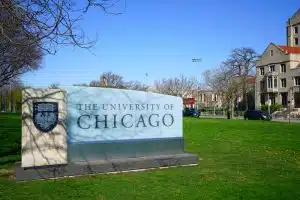Is 910 a Good SAT Score?
Every year, millions of high schoolers take the SAT to improve their chances of getting into the school of their dreams. Along with the ACT, this standardized test is intended to give admissions officers an accurate idea of how applicants will perform in college-level courses.
If you received a 910 SAT score, you’re probably wondering whether it’s a good score or not. After all, this determines your next steps. A solid score means you can start focusing on other areas of your application while a poor score might require you to retake the exam over again.
It’s important to optimize your SAT score because of the impact it has on your college application. The higher the score, the better your chances of getting into your dream schools. Of course, there are other admissions factors to take into account, but admissions officers weigh SAT scores heavily when determining who is eligible to get accepted.
In this article, we’ll determine whether a 910 SAT score is good, what you should do next, whether or not you need to retake it, and where you can apply those results.
Is 910 a good SAT score?
Unfortunately, 910 is not a good SAT score. In reality, it’s a weak score that will keep you from achieving your college admissions goals. Although you’re still outperforming the majority of test takers, it’s still not enough to get you into the top schools in the country.
You’re effectively missing out on hundreds of top-tier schools due to your low SAT score, which isn’t ideal. When it comes to college admissions, you want to put yourself in the best position to succeed with as many opportunities as possible and an optimized college application.
A 910 SAT score simply doesn’t provide that. It doesn’t matter if you spent months upon months preparing for the exam or you barely studied at all, admissions officers are going to see your lower performance on the exam when comparing it to other applicants.
What percentile is a 910 SAT score?
The 910 SAT is in the 24th percentile. This means just shy of 1,600,000 of the 2.13 million test takers scored the same or higher than you. On the flip side, that means you outperformed more than 1.8 million test takers.
With those impressive-sounding numbers, you might wonder why a 910 SAT score is considered weak. The key is to think of the millions of students applying to colleges and universities throughout the country and the limited number of slots available.
Admissions officers have to be extremely selective about the type of students they accept, especially when it comes to the best schools in the country. Anybody can send in an application, so just because you outperformed the majority of test takers doesn’t mean it’s sufficient to get accepted into your dream school.
Colleges and universities are looking for the best of the best. The SAT is a unique college admissions factor in that it provides an objective view of a student’s performance unlike letters of recommendation, college supplemental essays, and other subjective components.
For this reason, the results of the SAT are pretty cut and dry. There’s no explaining away a lower score. Admissions officers aren’t going to read into it and try to come up with a reason you might not have scored as high as possible.
Instead, they’re going to take your score and compare it to other applicants to immediately know where you stand when it comes to standardized tests. Sure, there are other elements that admissions officers take into account, but SAT scores are among the most objective and easy to use.
What is a good SAT score today?
A 1400 SAT score or higher is a good score in today’s admissions environment. This puts you in the 95th percentile of all high schoolers taking the SAT. That means you outperformed 95% of test takers, putting you in the top 5%. When you consider that over 2 million people take the SAT every year, that’s really impressive score.
While a 1400 SAT score won’t make you a shoo-in for the top universities in the country, it certainly drastically increases your chances of getting accepted. You can confidently apply to the schools of your dreams assuming the rest of your application is up to snuff. Admissions officers will take notice with a 1400 score or higher.
Of course, the more you can bump up your score, the greater the impact it will have on your application overall. Even if you have to take the SAT two or three times, it’s definitely advisable to aim for at least a 1400 score. When you achieve this, you can feel great about your accomplishment and more secure about your college admissions opportunities.
Colleges you CAN get into with a 910 SAT score.
Even though a 910 SAT score is still higher than the majority of test takers receive, it still greatly limits the number of quality schools you can expect to get admitted to. In general, this SAT score is going to limit you to state colleges with high acceptance rates. Selective schools with anything below a 20% acceptance rate are going to have too stringent of requirements to really consider applicants with a 910 SAT score. Of course, there are some great state colleges but that doesn’t mean you have to accept a limiting college application.
Colleges you CAN’T get into with a 910 SAT score.
While it’s important to understand the colleges you can get into based on test scores, you should also keep in mind the schools you didn’t quite make the cut for. Why? Well, it’s certainly not to taunt yourself. Instead, it’s about giving you a goal to aim for when retaking the SAT.
With a 910 SAT score, you’re effectively out of running for the Top 10 universities and Ivy League schools. These comprise most of the well-known and highly-sought after colleges and universities including Harvard, MIT, UPenn, Caltech, Brown, Princeton, and more.
Generally speaking, any college with an acceptance rate below 20% won’t admit students with a 910 SAT score. Their highly selective admission rates limit them to only the highest performers in their application pool.
What you should do now.
So, you now know that a 910 score isn’t ideal. You have a better understanding of where it puts you in relation to other applicants and how it impacts your chances of getting into your dream schools. Now, the question is what you should do moving forward.
Don’t be hard on yourself.
It’s never fun to view your highly anticipated standardized test results only to realize you didn’t get a good score. This is especially tough to handle if you spend a lot of time and energy preparing. However, a 910 SAT score isn’t the end of the world. Take a deep breath and try not to be too hard on yourself. You’ll need that energy moving forward.
Take a break (if you need it).
If you’re coming off months of preparing for the SAT, you might need a slight break from standardized tests to reset and recharge. As long as you have sufficient time (which is why we recommend taking the SAT early!), you shouldn’t have any trouble avoiding thinking about the SAT to give yourself a break. You can focus on other parts of your application to remain productive.
Be honest about your effort.
Here’s where honesty is important. How hard did you prepare for the SAT? The answer to this question plays an important role in determining how hard you need to study moving forward. If you didn’t study at all, you now know that studying is necessary to achieve your desired score. On the other hand, if you spent time preparing for the SAT, you can take time to determine which strategies worked and which ones you should get rid of.
Schedule a new test date.
The SAT is administered in hundreds of locations across the country, making it easy to find a time and location that fits your schedule. You’ll want to pick a date that gives you sufficient time to prepare without putting you in jeopardy of not getting your results in time to apply to your dream schools. That’s why we advise scheduling a new SAT test as soon as possible following a 910 score.
Get ready to take it again.
Now comes the tough part. You’ll need to prepare for the SAT again no matter how much you studied beforehand. A 910 score means you have 310 possible points of improvement which is a lot. You’ll need to devise a clear, effective, and actionable strategy that can reliably improve your performance so the next time you take the exam you can get a higher score. Don’t worry! We’ll provide you with some tips for improving your score the next time around.
Tips for improving your SAT score.
Get Help from AdmissionSight
Our Private Tutors are well trained at helping you navigate the Math, Reading, and Writing sections of the SAT. In fact, our state of the art SAT tutoring program can help you dramatically improve your score over the course of several sessions, where our private tutors will help you identify your weaknesses, gain a fundamental understanding of the subject matter, and improve through practice problems and exams. A solid SAT score can open the doors to competitive universities, and AdmissionSight’s Private Tutors are experienced at helping students crack the SAT exam.
Study at the Khan Academy
The Khan Academy, a leading e-learning platform, has a comprehensive and easy-to-follow SAT course designed to help students improve their scores on this standardized test. It’s one of the most holistic and effective SAT courses available online. If that wasn’t exciting enough, the Official SAT Practice at Khan Academy is completely free! All you have to do is sign up for a free account to access the course. You can take the course at your own pace and according to your schedule, making it an incredibly flexible studying tool.
Take practice exams.
There’s no shortage of resources online telling you what kind of material will be on the SAT. However, these materials are much more effective when put into practice. By taking practice exams, you’re replicating the actual setting and atmosphere of the SAT which can greatly impact your performance. There are plenty of SAT sample tests available online and in textbooks. Some are free and others require a purchase. Regardless, it’s important to mimic test conditions as closely as possible when taking these practice exams to replicate how you’ll feel during the real thing.
Improve your vocabulary.
Vocab is a crucial part of the SAT exam which most students underestimate. If you don’t know the definition of a difficult word, it makes it nearly impossible to answer the rest of the question properly. As a result, it’s highly advisable to improve your vocabulary before taking the test again. The most effective way to achieve this goal is to search for SAT vocab lists online. There are plenty of resources that will show you commonly-used vocab on real SATs. This way, you can rest assured you’re studying pertinent words and not random vocab.
Don’t leave answers blank.
Okay, this is more of a test-taking strategy than a preparation tip. But, it’s still highly effective at helping students improve their scores. There’s a common misconception that leaving an answer blank on the SAT is better than providing an incorrect answer. In reality, wrong answers don’t count against you. As a result, there’s absolutely no reason to leave a question blank. Since the questions are multiple-choice, you have a 20% of getting the right answer. These odds might even be higher if you’re able to rule out one or two answers through the process of elimination. You can always leave questions blank to come back to them later in the exam, but just make sure you don’t turn in your exam with blank questions. You’re essentially leaving points on the table.
Set a practice schedule.
The most effective SAT preparation strategies and the most impactful studying resources won’t provide any benefit if they’re not being used regularly. That’s where a studying schedule comes in handy. You can start off with the best intentions to study regularly, but it’s easy to fall short without a set schedule. We advise students to study at least a few hours a week when prepping to retake the SAT. You won’t want to end up taking up so much time away from your day that your academic and extracurricular performance starts to decrease. Whether you want to study for just a half-hour every day of the week or for a few hours in a single day, finding what works for you and your schedule will yield the best results.
Make use of official SAT material.
Yes, there is such a thing as official SAT material! The College Board, the nonprofit organization that creates and administers the SAT, has countless resources on its site. The best thing about these resources is that you can remain positive they’re accurate due to their official source. These resources will accurately show you what kinds of questions and materials will show up on the exam. Having already taken the SAT, you’ll know what to expect from the exam, but these official SAT resources are a great way to improve your readiness to take the test.
Forget about your previous score.
Don’t let the weight of your previous score keep you down when preparing for the SAT again. This baggage can keep you from putting forth your best effort by reducing your confidence. You’re going to need that energy to study and prepare for the SAT instead of wasting it on fruitless worrying. There’s no penalty for retaking the SAT and your highest score is what admissions officers are going to consider when reviewing your application. In reality, there’s nothing to worry about. Just try your absolute best to get a great score on the SAT. The rest will take care of itself.
Work with a professional.
One of the most effective strategies for boosting your SAT score is to work with a standardized test professional. These experts can help you identify where you fell short on your first exam, where you need to improve, and what steps you can take to make those advancements. At AdmissionSight, we’ve been helping students just like you optimize their SAT scores to increase their chances of getting into the country’s top colleges and universities. We’ll work with you one-on-one to determine the most effective route for boosting your score. Our team has the resources, knowledge, and tools needed to help you get the highest score you can on the SAT.
Get into your dream school.
Looking to attend the school of your dreams? Of course, you are! We can help you navigate through the various steps of the college admissions process to get into the best possible school. For over 10 years, we’ve been helping students excel on their college applications, and we’d love to help you next. In fact, 3 out of every 4 of the students we’ve helped have made it into Top 10 or Ivy League schools.
Through our personalized and highly effective services, we help students develop an ideal Ivy League application by identifying their goals and personal interests. We also help them excel in their professional and academic endeavors. If you’re a student who would like to learn more about how we can help prepare you for the league, feel free to contact us to get started.









































